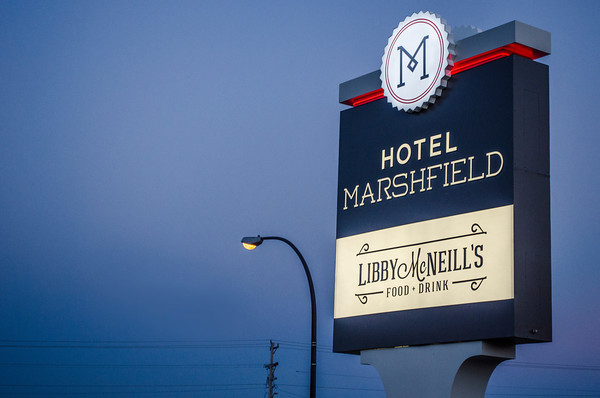Marshfield, May 1915: A bumpy road

The contentious decision to pave city streets
By Kris Leonhardt
Featured Columnist
As transportation progressed across the nation, railroad travel waned, and automobile travel exploded. On the local front, Marshfield’s Central Avenue became a welcome link on Wisconsin’s state highway system, making Marshfield’s main street a thoroughfare for passing traffic on State Highway 13 and a prosperous business area as well. However, the steps that led to the paving of Marshfield streets and further progress did not come about swiftly or easily.
After several years of talk and heated debate, 20 property owners along Central Avenue in Marshfield met at the City Hall during the first week of May in 1915. The purpose of the meeting was to raise funds to seek an injunction to stop the paving of the busy street. The group was not objecting to the construction on the street but wished to hold it off another year.
After requesting $5 from each owner, the group’s next action was to secure legal aide to investigate the possibility of the action.
At the same time, three aldermen were looking to hold off on the project, accusing other council members of using “steam roller” tactics against property owners.
Following years of talk and discussion, a majority of the council was ready to get things done. At the meeting that early May, the council room was packed with spectators. Contractors, the media, legal counsel, property holders, and residents were all ready to take a stand.
Personalities clashed, and accusations were made. Then a majority petition was presented from some property owners requesting that the paving from A Street to Eighth Street on Central Avenue be completed with brick block.
The petition was further backed by the Soo Line Railroad, also requesting the use of bricks, while the Omaha Railroad offered support while not taking sides in any of the debate.
A resolution was finally presented by Alderman Hastings and accepted, calling for the use of brick block with construction by the Kenosha Company—one of several making bids—to be completed that same year.
Backlash from aldermen Roddis, MacFarlane, and Neumann and others followed, as everything from the year to the product was scrutinized. However, the majority had its fill of the subject.
After harsh words were spoken, MacFarlane originally refused to vote but later recanted. The resolution finally went to vote. Ten voted for the resolution with two—Roddis and MacFarlane—opposed. Roddis and MacFarlane would later change their vote to make it unanimous. Paving preparation was begun later that week.
Leave a reply
You must be logged in to post a comment.







